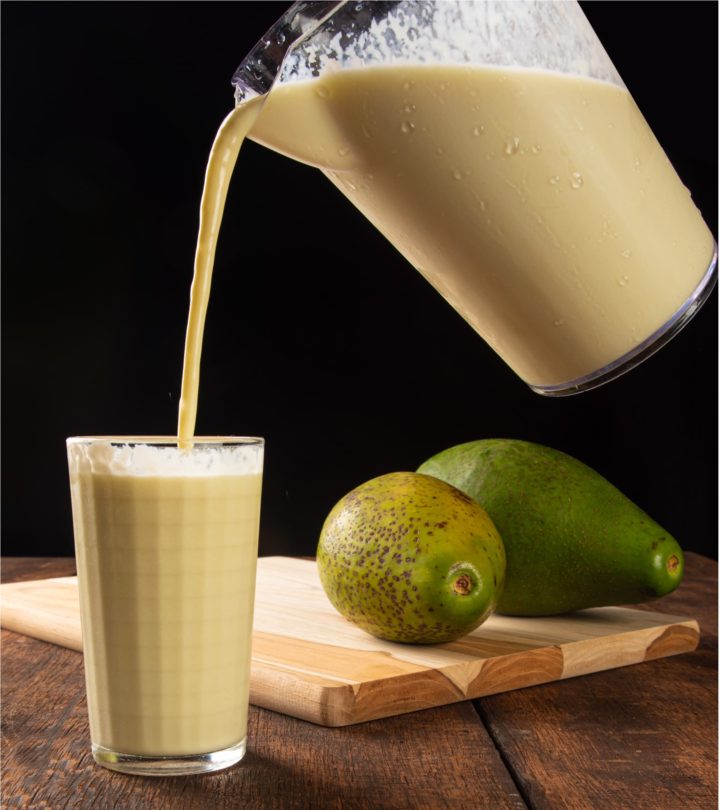
Avocados are the newest hype in an era where weight loss is viewed as standard. For some, however, they may be the unpopular alternative due to their cost. But from a health and fitness avid person’s standpoint, that's probably the way it should be. They are, in fact, worth their weight in gold.
Avocados come in various shapes and colors, ranging from pear-shaped to round, green to black. They can also be anything between 8 ounces (220 grams) and 3 pounds in weight (1.4 kg). The Hass avocado is the most popular kind. It is a 136-gram edible fruit with a creamy, smooth texture and a thick dark green, purplish-black, and rough skin.
Avocados, also known as alligator pear or butter fruit, are a variety of berries. Yes, you read that right. It is a fruit! The avocado seed and skin make up around 33% of its overall weight.
Avocados are a fresh-from-the-farm food. They don't need processing, preservatives, or flavor boosters. Plus, they thrive in hotter climates. Thus, avocados are grown in environmentally sustainable ways because their natural skin removes the need for packaging and provides some disease and insect resistance.
Avocados have become a cultural phenomenon, whether you like them on toast, in guacamole, smoothies, sushi, or salads. However, is this luscious fruit genuinely beneficial to your health, or is it all hype and no substance?
In this article, we will review its health benefits, nutritional content, and value. We will also look at avocado in a different light, as avocado milk.
Table of Contents
Nutritional Contents
The avocado consists of around 73% water, 15% fat, 8.5% carbohydrates (mostly fiber), and 2% protein. It is a high-fat, high-fiber, and low-glycemic-index food.
Roughly half an avocado or 100 grams (g) contains:
160 calories
14.7 g of fat
8.5 g of carbohydrates
6.7 g of fiber
less than 1 g of sugar
Carbohydrates
Avocado fruit carbohydrates are composed of about 80% dietary fiber. It consists of 70% insoluble and 30% soluble fiber. Because of this, avocados are regarded as high-fiber foods.
The recommended daily fiber consumption for women is 25 grams and for men is 35 grams, a value most of us fall short of. Avocado will help you reach this requirement. It contains roughly 1 gram every tablespoon, with an entire avocado already containing around 10 grams of fiber.
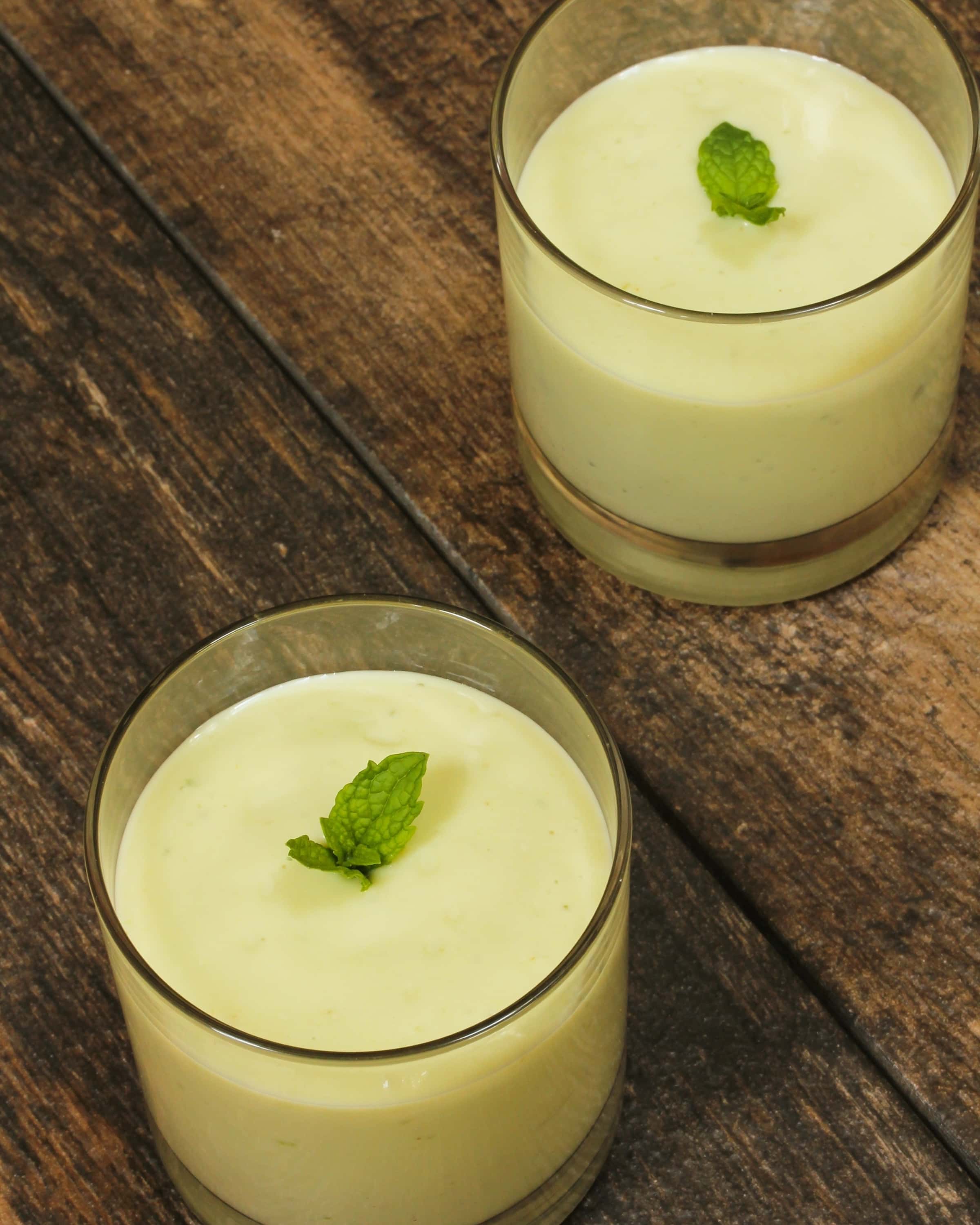
Sugar
Compared to other fruits, avocados contain very little sugar. One-half an avocado contains only about 0.2 g of sugar. It is a low-glycemic food as its glycemic index is expected to be about zero. These may provide an advantage to those whose sugar levels are on watch.
Fat
Fat is required by every cell in the body. Eating healthy fats promotes skin health and improves the absorption of fat-soluble vitamins, minerals, and other nutrients. It even supports the immune system's functions.
Avocados sure have a lot of fat in them. It's not, however, the saturated fat found in full-cream dairy products, red meat, and most junk food. It is monounsaturated fatty acids that make up most of the fat in avocados (MUFAs)—that type which they say is good for your health.
Another advantage of this high fat- high fiber mix is that it makes you feel fuller for longer. In a study, overweight individuals who ate half an avocado with their lunch were less likely to feel hungry afterward.
Vitamins and Minerals
Avocados are high in riboflavin, niacin, folate, pantothenic acid, magnesium, and potassium, as well as vitamins C, E, K, and B6. Lutein, beta-carotene, and omega-3 fatty acids are also found in them.
Vitamins C and E
Avocados are one of the few foods that are high in both vitamin C and vitamin E. It contributes to 17% of the daily need for vitamin C and 10% of the daily requirement for Vitamin E. Both Vitamin C and E are antioxidants. It protects the blood vessels against excessive attacks from oxidative stress.
Potassium
Avocados contain lots of potassium. They provide 14% of the daily need or about 152 mg in 30g of fruit and 345 mg of potassium in one-half of fruit — a level that supports its claim as a blood pressure-lowering food.
Dietary Approaches to Stop Hypertension, or DASH diet, is an eating plan designed to help hypertensive patients plan their meals. It is potassium-rich with a daily potassium target of 4,700mg. This level is satisfied by the intake of avocados.
A high potassium intake lessens the risk for heart attacks, strokes, and renal failure.
Magnesium
Magnesium acts as a helper for many cellular enzymes required in energy metabolism, and it may help support normal blood vessel tone. It also helps in how the body utilizes insulin during high glucose events. One medium avocado provides 58 mg of magnesium, which is 15% of the recommended daily intake. This mineral also helps to prevent hypertension.
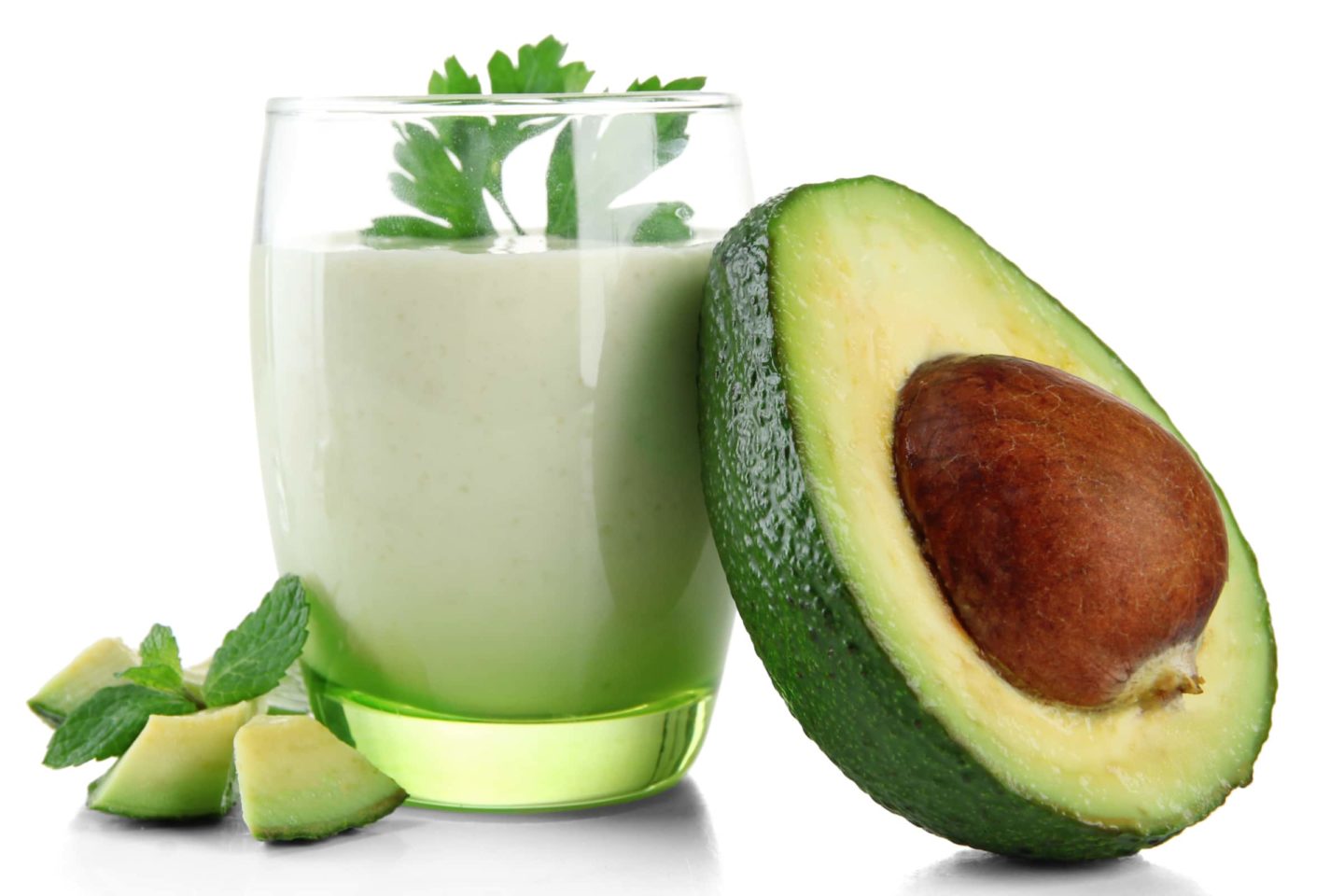
Vitamin K1
Vitamin K1 functions in blood coagulation and bone metabolism. Avocados provide 26% of the daily value of Vitamin K. This is also one of the reasons avocados are implicated as beneficial in osteoporosis. However, more studies are needed to prove this.
Folate and other B vitamins
Avocados provide 20% of the daily value for folate. In some studies, high folate consumption has been linked to a lower incidence of colon, stomach, pancreatic, and cervical malignancies.
Deficiencies in B-vitamins such as folate and B6 also may increase homocysteine levels, posing a danger to blood vessel health and increasing cardiovascular risk.
It also contains small amounts of manganese, copper, iron, zinc, phosphorus, and vitamins A, B1 (thiamine), B2 (riboflavin), B3 (niacin), B5, and B6.
Fruit compounds
Carotenoids
This fruit can also provide significant amounts of carotenoids, especially the xanthophyll carotenoids lutein, β-cryptoxanthin, and zeaxanthin, resulting from increased consumption. These are helpful for eye and cardiovascular health.
The absorption of carotenoids in the gut depends on dietary fat for its breakdown and transfer into the bloodstream. The avocado fruit has a unique fat in the form of unsaturated oil and water that is naturally designed to enhance absorption.
Phenolics
Preliminary research suggests that fruit phenolics can assist in maintaining blood vessel health by decreasing oxidative stress and inflammation. It also improves blood flow by reducing excessive blood clotting, which can block the vessel.
Phytosterols
Avocados are the richest known fruit source of phytosterols. Although the avocado's phytosterol content is lower, its unique fat structure promotes stronger blocking of cholesterol absorption in the stomach than fortified foods and supplements. This may play a role in weight loss.
Recommended Intake
Avocados also need to be taken in moderation. The recommended daily serving size is ⅓ of a medium avocado or 50 grams or 1.7 ounces.
Amazing Health Benefits
Avocados are high in monounsaturated fatty acids and a variety of vitamins and minerals. They, indeed, can provide a lot of advantages when incorporated into a varied, balanced diet.
Here are some of the avocado's health benefits to persuade you to pick up a couple on your next supermarket run:
Contains Healthy Fats
Avocados are rich in healthy, beneficial fats, which can make you feel fuller in between meals. Consuming fat delays the digestion of carbohydrates, allowing blood sugar levels to remain steady throughout the day.
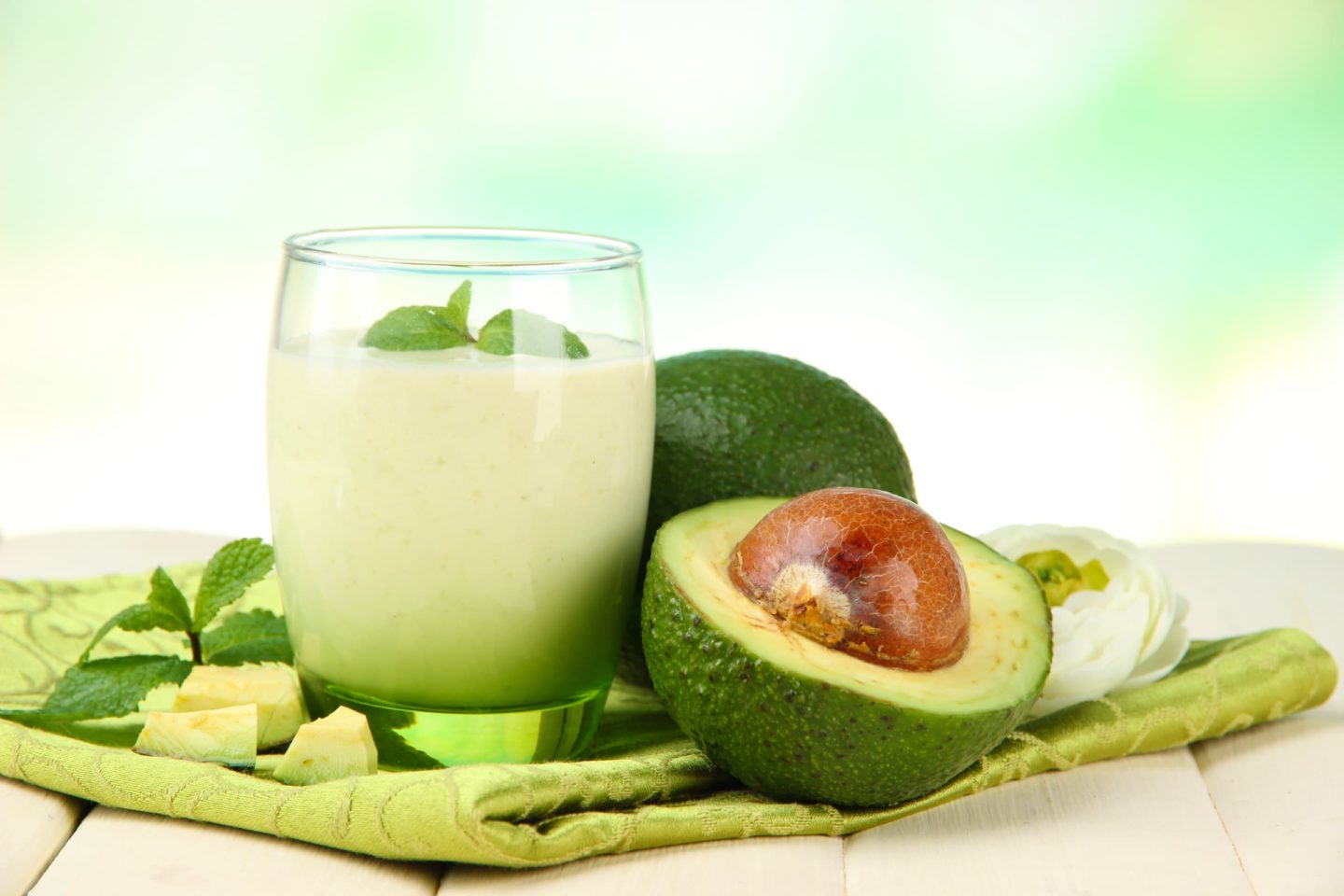
Some people are afraid of avocados because of their high-fat levels. However, unlike fats found in deep-fried foods, meat, and dairy, avocados are abundant in monounsaturated fatty acids (MUFA), which most people don't need to avoid.
Oleic acid, also found in olive oil, is the most prevalent fatty acid in avocados. This type of fat can result in reduced inflammation, a rise in good (HDL) cholesterol, and a decrease in bad (LDL) cholesterol.
Helps in Weight Loss
Avocados are heavy in calories, and most of those calories come from fat. So, should you eat this fruit as part of a healthy, well-balanced diet? While fat accounts for most of the calories in an avocado, it is mainly in healthy monounsaturated fat.
In an analysis of adults, avocado eaters had lower weight, BMI, and waist circumference than non-consumers. In another study, participants who ate one and a half avocados for six weeks were found to lose their total percentage of body fat, confirming that avocados can fit into a weight loss diet plan.
Healthy fats are essential for blood glucose control and can help with those late-night sugar cravings. Finally, this can lead to lower overall calorie consumption and improved weight loss.
Promotes Healthy Aging
It is every person’s goal to age gracefully. Aging, however, is inevitable. On a lighter note, this metabolic process can be slowed, and its exaggerated effects on the body can be prevented.
Several clinical studies suggest that xanthophylls, similar to those found in avocados, may have antioxidant and DNA protective effects with possible healthy aging protective effects.
Diets high in MUFAs can also protect against age-related vision loss in two ways. First, avocados contain a combination of MUFA and lutein/zeaxanthin. Avocados contain 185 grams of lutein/zeaxanthin per half fruit, which the body can readily use, compared to other fruits and vegetables. Second, the fruit components can also assist in carotenoid absorption from other fruits and vegetables. Both of which may benefit eye health.
The skin is also not spared from the effects of oxidative stress. The good thing is that avocado's highly bioavailable lutein and zeaxanthin may help protect the skin from UV and visible radiation damage.
Currently, there is increased interest in the relationship between avocados and the prevention of cancer. Avocados contain several bioactive phytochemicals and glutathione that have been reported to have anti-cancer properties. However, research on direct avocado anti-cancer activity is still preliminary, and human studies need to be performed.
Supports Pregnancy

Avocados are high in potassium and folate, among other nutrients. These components are essential for the fetus' appropriate development and growth. Avocado is highly recommended and safe to consume throughout the three trimesters of pregnancy due to the vast amount of vitamins and minerals it contains.
Avocados also include fatty acids that are important for fetal brain development. Choline is a critical component for a robust neurological system and a healthy nerve network throughout the baby’s body. Avocado offers roughly 22mg of choline per serving.
It is also the presence of folate which research has linked with reduced risk for depression. In a study, the vitamin was needed to balance the effect of excessive homocysteine on the “mood” hormones. However, these claims need to be verified.
Improves Diabetes Management
Avocados may also have health benefits for people with diabetes. Although they contain carbohydrates, they have a glycemic index of almost zero, which indicates they have practically no influence on blood sugar.
The American Diabetes Association also encourages people with diabetes to consider adding avocados to their diets due to their healthy fats. As avocados are high in monounsaturated fats, they are a healthy choice for those with diabetes because they improve metabolic profiles.
Some studies have found that eating avocados regularly results in improved glycemic control in people with type 2 diabetes. This is because the body can utilize glucose more effectively.
Lowers Cardiovascular Risk
Avocados are “heart-healthy.” Clinical studies consistently show the benefit of its consumption on blood lipid profiles. It decreases bad cholesterol, which could pile up and block the blood flow in vessels. Its natural phytosterols and dietary fiber may also help reduce cholesterol, which could harden and cause strokes and organ damage.
Also, its high potassium levels are linked to adequate blood pressure control.
Avocado Milk: What’s the Hype About?
Avocado may be eaten by itself, made into guacamole, or combined with your favorite salads. But there’s another twist to the usual, the avocado milk. All famous in Southeast Asia, it goes by the names avocado milk smoothie or avocado milkshake. However made, it is a simple, pleasant dessert.
In the market, there is commercially prepared avocado milk. It utilizes freeze-dried avocado added to oat milk, which makes it a non-dairy favorite.
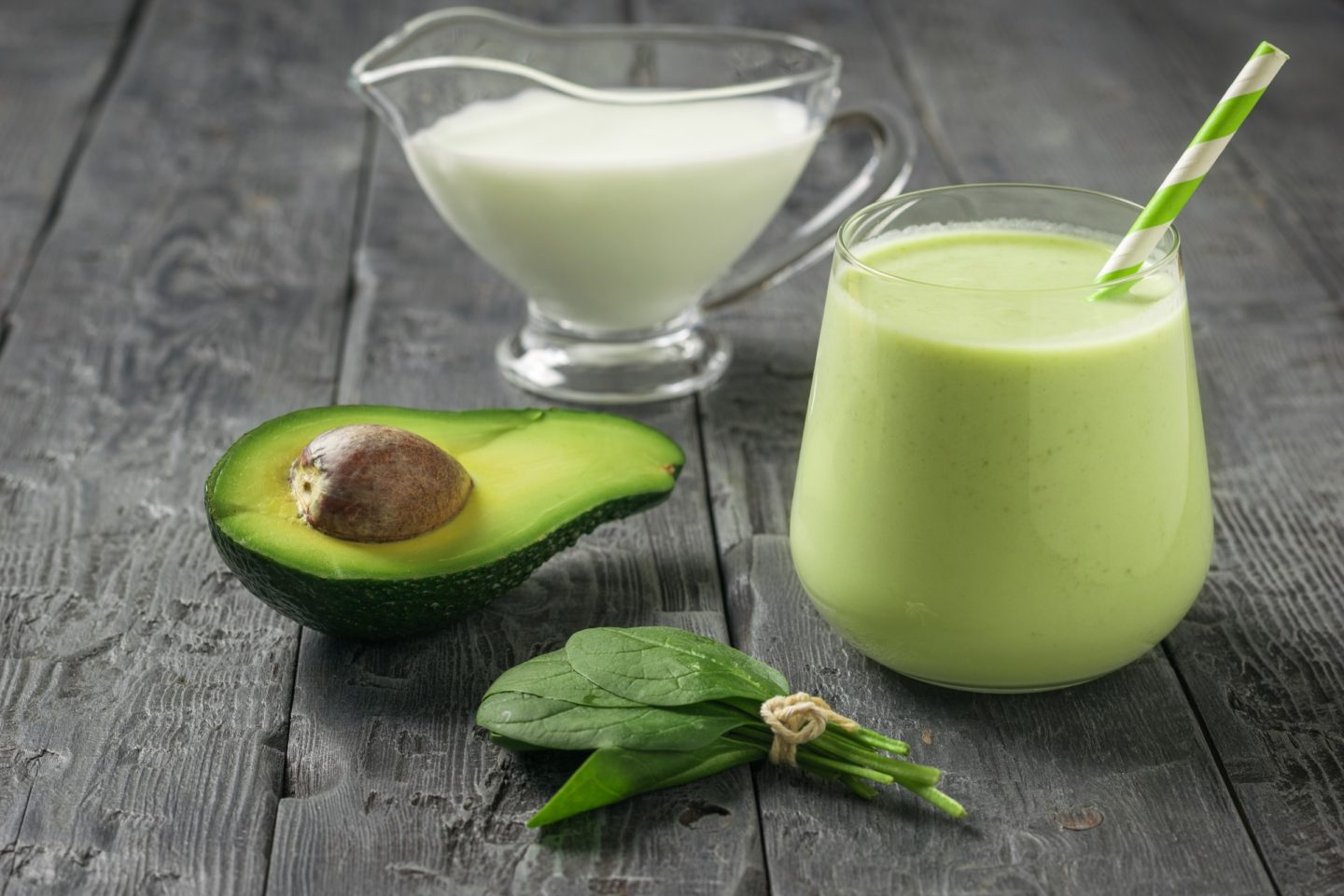
In addition to adding creaminess, a bit of avocado flavor, a beautiful green color, and the vitamins and nutrients that avocados contain, this is surely a new way to enjoy while taking full advantage of its benefits. It is also super environment-friendly as it uses the less-than-perfect avocados that, while edible and delicious on the inside, aren't attractive enough to be sold on supermarket shelves.
But for those in control and on the more cost-effective side, we can prepare our version of the avocado milk. The best thing about it is that there are no hard and fast rules. You may blend in more milk for a creamier texture and substitute fruit instead of sugar or honey to taste. You may experiment with almond or soy for a vegan drink, and even condensed milk to satisfy a sweet tooth.
Making Your Avocado Milk
Selection and Storage of Avocado
When selecting an avocado, look for one that is both colorful and feels good to touch. To begin, choose an avocado with a dark, uniform color. Place it in the palm of your hand and squeeze it lightly. It is ripe and ready to use if it yields slightly.
Avocados can be stored in the refrigerator for 2 to 3 days if they are ripe and uncut. If you only eat a tablespoon of avocado at a time, follow these storing tips to keep it fresh. You may squeeze lime or lemon juice into the fruit to eat only a tiny portion and save the remainder for later without browning.
If the avocados are still unripe, place them in a brown paper bag with an apple or banana for 2 to 3 days to mature it quickly. You can also freeze an avocado, although the texture of the fruit may alter.
Avocado Milk Recipes
Avocado Milk
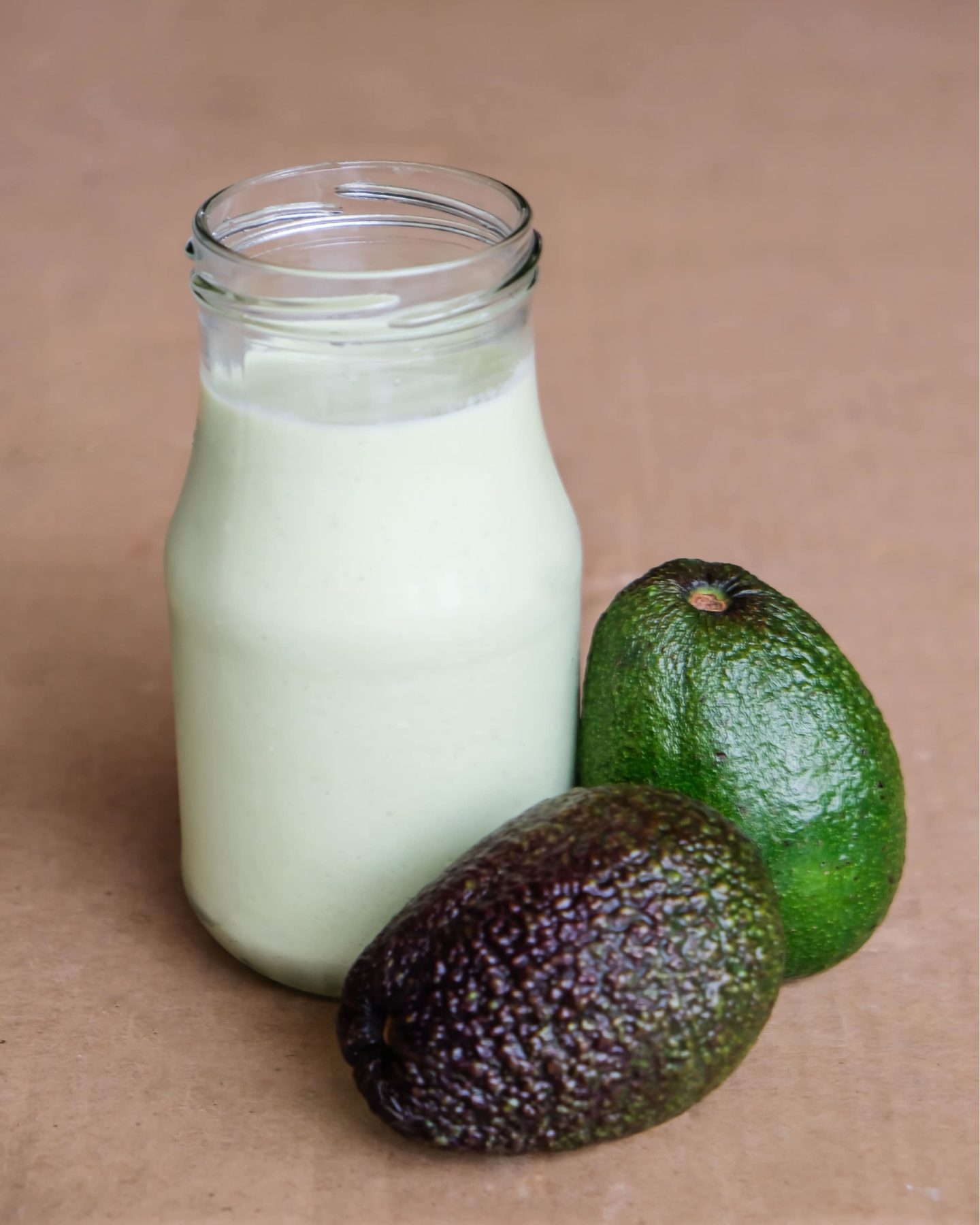
The ingredients you will need:
- 1 large ripe avocado
- 2-3 tablespoons granulated sugar to taste
- 1 ½ cups ice-cold skim milk
Cut the avocado in half and remove the pit before slicing it into quarters and peeling the skin. Remove the pit and peel the fruit. In a large glass, crush the avocado slices with the sugar to make a paste. Add the milk and whisk to combine. Place all of the ingredients in a blender and blend until smooth for a more creamy texture. Immediately pour the avocado milk into two glasses and serve.
Avocado Smoothie
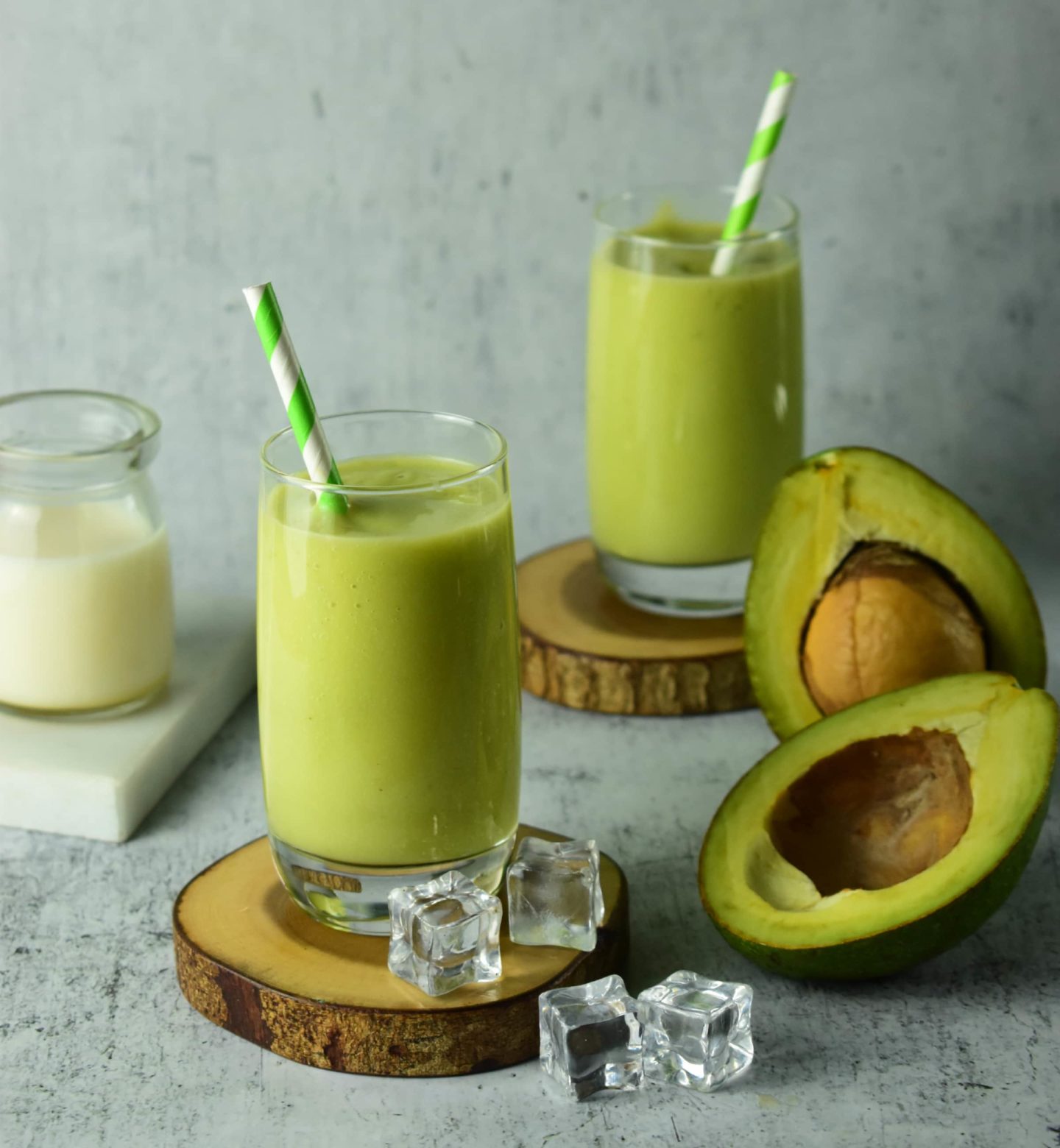
You’ll need:
- 1 ripe avocado, halved and pitted
- 1 cup milk
- ½ cup vanilla yogurt
- 3 tablespoons honey
- 8 ice cubes
Combine the avocado, milk, yogurt, honey, and ice cubes in a blender until smooth. Serve immediately.
Other Avocado Milk Drinks
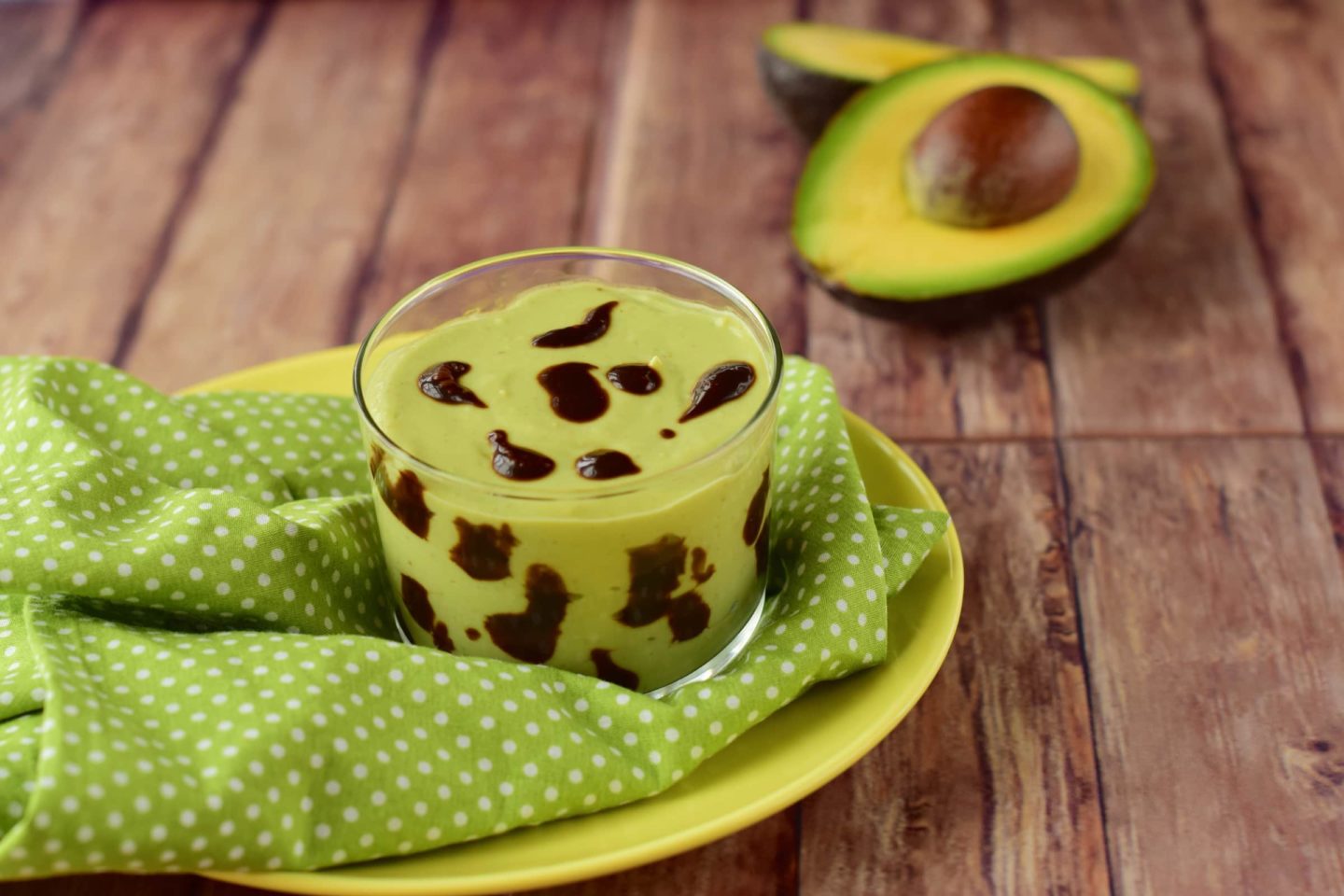
Indonesia: Es Alpukat
Combine the above ingredients with around ¼ cup of strongly brewed coffee or espresso and top with chocolate syrup for an Indonesian avocado coffee shake.
India: 'Butter fruit juice'
Similar to that from Indonesia, but with a splash of lime juice added.
Sri Lankan Avocado Shakes
These are comparable to American avocado shakes, but they usually include heavy cream, vanilla essence, or even vanilla ice cream.
Taiwanese Avocado Milk
Add a small pudding container, such as vanilla pudding or crème brulee to the avocado milk. You might also use boba, mango boba, or coconut jelly to make bubble tea.
Moroccan Avocado Smoothie
Add a few drops of rose water to the avocado milk for a Moroccan rose avocado smoothie.
You may also add some spices, aromatics, cocoa, or decorate your avocado milkshake with fruit.
Add a pinch of cinnamon, cardamom, vanilla, saffron, mahlab spice, and nutmeg for extra flavor. Adjust according to your desired taste.
Other aromatics are enjoyed by many, including orange blossom, citrus zest and juice, dried rose petals, and fresh mint.
You can also swap out some of the milk for Kahlua or Baileys Irish cream.
For an added chocolate flavor, the addition of cocoa will help. Top with some grated chocolate, blend in cacao nibs or chocolate chips, or add in some cocoa powder.
Also, feel free to mix additional jackfruit, durian, strawberries, mango, pineapple, blueberries, apple, pomegranate into the avocado shake or use some to decorate the top.
Are the Avocado's Health Benefits Worth It?
Avocados can be incorporated into various eating plans in the framework of a healthy diet (e.g., DASH diet plan). According to data, the average person’s avocado consumption is one-half of a fruit. This amount will provide a person with a chemically and nutritionally dense food with fiber, potassium, magnesium, vitamins A, C, E, K1, folate, and other B vitamins. It also contains choline, lutein/zeaxanthin, phytosterols, and MUFA-rich oil.
It is truly a “heart-healthy” food as it offers protection against cardiovascular diseases. It also promotes weight loss, supports pregnant women, and promotes a healthy aging process. It provides nutrition while it is very easy to prepare and enjoy with all its varieties.
While there is still some research ongoing on its effects on cancer, depression, and other ailments, there is enough science that provides evidence that avocados “are worth more than their weight in gold.”

Leave a Reply